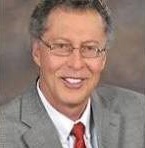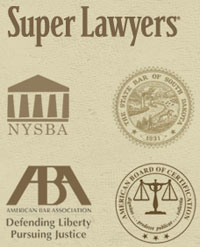
This opinion piece discusses wind turbine ordinances in South Dakota. I focus on local (county) ordinance writing and its hazards. I will not discuss other important related issues such as wind energy tax credits, the intricacy of wind easement agreements, state wind development policy or community and environmental risks. Those are left for another conversation. Like all natural resources wind energy is a viable source of energy, and of income. The development of this energy source has ebbed and flowed over the prior twenty years. Yet looking at it in 2018, the state is quickly becoming a preferred site for wind farms.
Why examine ordinance writing? Because counties should abandon their seeming indifference and treat wind energy development with as much serious attention as that given to writing oil and gas production rules or water law. The wind energy economy is here to stay. Under South Dakota law counties have a significant say-so in wind turbine law. The advantage of this? Local leaders get to make local law. The disadvantage? While a good amount of state legislation is done without the benefit of clergy, even less clerical advice can be found in certain existing county ordinances. “Local lawmaking” does not get the attention the public and media give to a state legislative session.
Ordinances governing wind energy systems, which are to be developed within a county, have a wide ranging effect on the local geography and economy. Local participation in ordinance drafting is a great advantage of county lawmaking. This leaves an opportunity for county commissioners to make the public, its local residents, “partners” in this lawmaking. There should be little uncertainty in ordinance language, it should be transparent, and the end product should favor open public participation in wind farm applications.
In reviewing the hazards of ordinance drafting I will put on the table relevant Walworth County ordinance language governing wind energy systems. The problems discussed here are not unique to Walworth County and are found in several of the ordinances of other counties.
The relatively new Walworth ordinance declares that a decision to grant a wind energy systems permit is an administrative matter. It is not. The state supreme court in 2009 held that a conditional use permit application is quasi-judicial and is subject to due process of the law. The county must be palpably fair to all parties affected in any decision to grant an operating permit. Conditional use permits are exceptional as such permits might approve operations in areas where the regular zoning rules would not allow it.
South Dakota’s constitution prohibits the legislature from writing private or special laws affecting only one party. In effect, granting a single wind farm developer approval of a particular project is akin to the county writing a private or special law. Because of this unique power courts have said that applications for such a permit must be subject to due process of the law with all its safeguards.
Due process requires a.) reasonable notice and b.) an opportunity to be heard at a meaningful time and in a meaningful manner. The Walworth ordinance fails on both counts. This ordinance should be rewritten.
a.) Reasonable notice. A public hearing is required on a Walworth County wind energy permit application. But inadequate public notice is provided under the current ordinance. The ordinance states that notice of a hearing shall be published once ten days prior to a hearing on the application in a newspaper in circulation in the affected area. Wind projects are often large in scope and are always important to a community. Is 10 days advance notice by newspaper sufficient for such an undertaking? The state supreme court recently ruled that a ten day advance notice would be sufficient on the facts of the case. But the court stated that the record in the case showed that the complaining party had not raised any concerns about the notice at the application hearing, and did not object to the notice process. The complaining party, according to the court, had not produced any evidence supporting its argument. It would be a fool’s errand to think this case was firm grounds for keeping a ‘ten day notice’ in a county’s ordinance language. Such one-time short notice by publication is an unreliable method of giving notice to the public. The U S Supreme Court has said, “The notice must be of such nature as reasonably to convey the required information, and it must afford a reasonable time for those interested to make their appearance.”
b.) The hearing. The process should provide an opportunity to be heard at a meaningful time and in a meaningful manner. The Walworth ordinance does not furnish sufficient advance notice nor does it require sufficient information for an interested party to prepare for such a hearing. The ordinance requires the applicant to advise adjacent property owners in writing of the “conditional use permit request.” The ordinance gives the applicant no guidance or directives as to ‘what’ information the applicant should give to the adjacent property owners. The ordinance does not require a description of the location of the project, nor does it require that the applicant provide property owners with a copy of the written application. At a minimum an ordinance should require that a notice to adjacent property owners refer them to a filed written application available at the county auditor’s office, include a copy of the application for the review by the affected property owners or cite to a link on the county website where the application is uploaded in full. Each of these is rather simple to do and not expensive for an applicant. This would allow interested parties to be meaningfully informed before the permit application hearing occurs.
David Ganje of Ganje Law Offices practices in the area of natural resources, environmental and commercial law.





